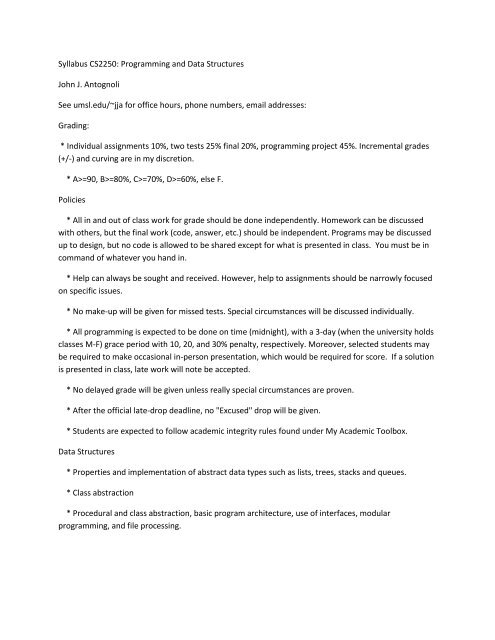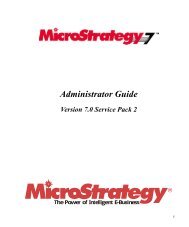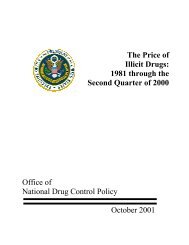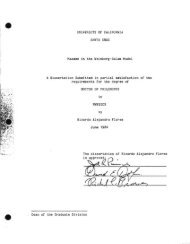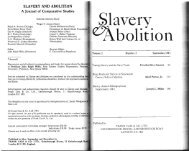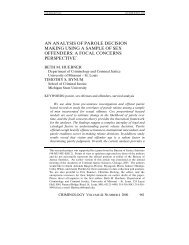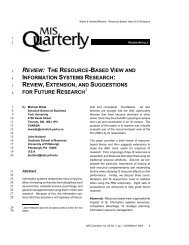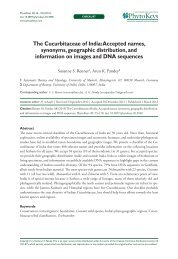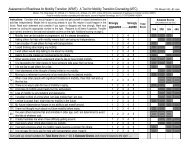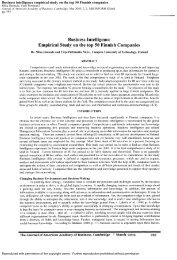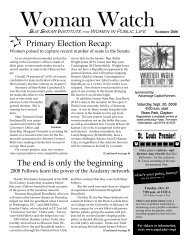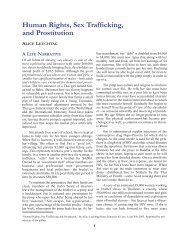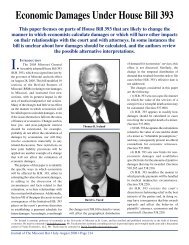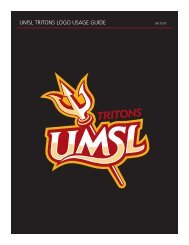Syllabus CS2250: Programming and Data Structures John J ...
Syllabus CS2250: Programming and Data Structures John J ...
Syllabus CS2250: Programming and Data Structures John J ...
You also want an ePaper? Increase the reach of your titles
YUMPU automatically turns print PDFs into web optimized ePapers that Google loves.
<strong>Syllabus</strong> <strong>CS2250</strong>: <strong>Programming</strong> <strong>and</strong> <strong>Data</strong> <strong>Structures</strong><br />
<strong>John</strong> J. Antognoli<br />
See umsl.edu/~jja for office hours, phone numbers, email addresses:<br />
Grading:<br />
* Individual assignments 10%, two tests 25% final 20%, programming project 45%. Incremental grades<br />
(+/-) <strong>and</strong> curving are in my discretion.<br />
* A>=90, B>=80%, C>=70%, D>=60%, else F.<br />
Policies<br />
* All in <strong>and</strong> out of class work for grade should be done independently. Homework can be discussed<br />
with others, but the final work (code, answer, etc.) should be independent. Programs may be discussed<br />
up to design, but no code is allowed to be shared except for what is presented in class. You must be in<br />
comm<strong>and</strong> of whatever you h<strong>and</strong> in.<br />
* Help can always be sought <strong>and</strong> received. However, help to assignments should be narrowly focused<br />
on specific issues.<br />
* No make-up will be given for missed tests. Special circumstances will be discussed individually.<br />
* All programming is expected to be done on time (midnight), with a 3-day (when the university holds<br />
classes M-F) grace period with 10, 20, <strong>and</strong> 30% penalty, respectively. Moreover, selected students may<br />
be required to make occasional in-person presentation, which would be required for score. If a solution<br />
is presented in class, late work will note be accepted.<br />
* No delayed grade will be given unless really special circumstances are proven.<br />
* After the official late-drop deadline, no "Excused" drop will be given.<br />
* Students are expected to follow academic integrity rules found under My Academic Toolbox.<br />
<strong>Data</strong> <strong>Structures</strong><br />
* Properties <strong>and</strong> implementation of abstract data types such as lists, trees, stacks <strong>and</strong> queues.<br />
* Class abstraction<br />
* Procedural <strong>and</strong> class abstraction, basic program architecture, use of interfaces, modular<br />
programming, <strong>and</strong> file processing.
Computing<br />
* Debugging with gdb<br />
* UML basic notation<br />
* OO basic st<strong>and</strong>ards<br />
C++ <strong>Programming</strong><br />
* Procedural <strong>and</strong> class abstraction, basic program architecture, use of interfaces, modular<br />
programming, file processing, dynamic memory, some STL containers<br />
Tentative Timeline<br />
Intro <strong>and</strong> cs1250 review: 0.5 weeks<br />
Chapter 8: 0.5<br />
Chapter 9: 1 week<br />
Chapter 10: 0.5 weeks plus compare c++ strings with NTS<br />
Chapter 11: 1-1.5 week<br />
Chapter 12: 1 week<br />
Chapter 13: 1.5 weeks<br />
Chapter 16: 1.5-2 weeks (including 7.12 <strong>and</strong> 8.5)<br />
Chapter 17: 1 week<br />
Chapter 18: 1 week<br />
Chapter 19: 1 week<br />
Chapter 20: 1 week<br />
Testing <strong>and</strong> Review: 2.5 weeks<br />
Supplements: 0.5 weeks<br />
If time permits: chapters 14, 15<br />
Text: Starting out with C++: From Control <strong>Structures</strong> through Objects. Tony Gaddis. 6th ed.


